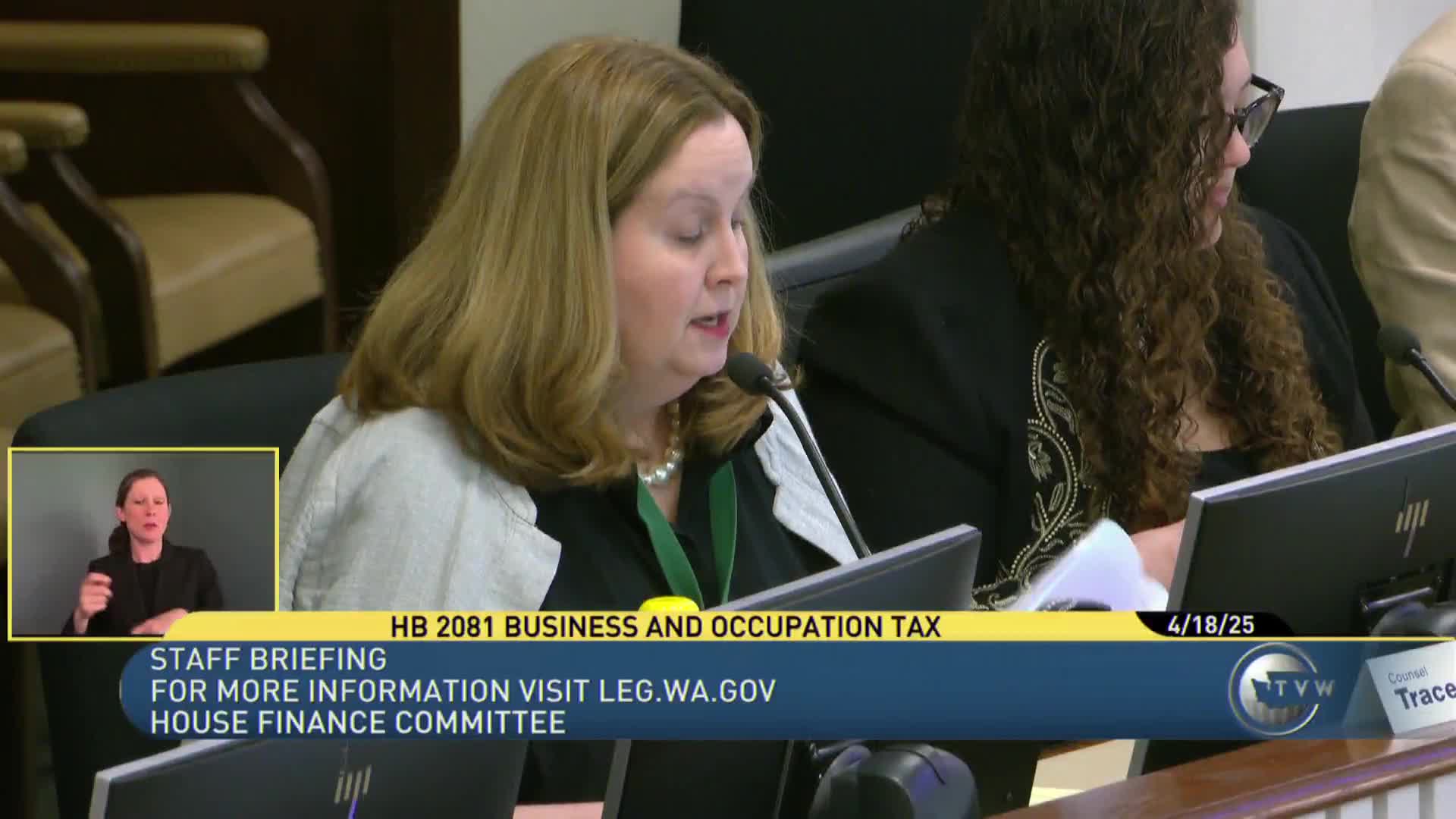House Finance hears proposal to tax surplus ZEV credits, divide revenue for EV incentives and state funds
Get AI-powered insights, summaries, and transcripts
Subscribe
Summary
Under House Bill 2,077, an excise tax would apply to the sale and banking of surplus zero-emission-vehicle credits, generating revenue for EV incentives and the state general fund while drawing objections from automakers and some environmental groups.
Under House Bill 2,077, an excise tax would apply to the sale and banking of surplus zero-emission-vehicle (ZEV) credits, with revenues split between electric vehicle incentive accounts and the state general fund before later routing some funds to a carbon emissions reduction account.
The bill would impose a 2 percent excise tax on transactions where a ZEV credit is sold to another manufacturer and a 10 percent tax on the privilege of banking (holding) a ZEV credit. For credits a manufacturer 'pulls' (uses) the bill treats pulled credits as sold and generally applies a 10 percent rate; the bill modifies that rate for the model-year-2025 ZEV program to 50 percent unless a manufacturer demonstrates delivery or sale in Washington at parity with its average Section 177 state deliveries, in which case the rate would be 10 percent. The bill exempts certain small-volume activity and requires reporting and Department of Revenue calculations and notices of tax liability.
The bill’s fiscal note assumes a ZEV credit value of about $6,000 for model year 2026 and estimates large revenue gains: roughly $77.9 million in fiscal 2027 and larger sums across the 2027–29 biennium. The proposal directs 30 percent of revenue to the electric vehicle incentive account and 70 percent to the state general fund until June 30, 2027; beginning July 1, 2027 the 70 percent share would go to the Carbon Emissions Reduction Account. The Department of Revenue would administer the tax and may adopt rules under its administrative provisions.
Supporters at the hearing framed the bill as closing a loophole that allows manufacturers to earn windfall profits from trading or banking ZEV credits rather than reinvesting in Washington. Lauren Boyne, a public worker and union member, said the proposal would reinvest revenue in environmental justice programs and help the state address its budget shortfall. Eli Taylor Goss, executive director of the Washington State Budget and Policy Center, called the tiered tax a "smart tool to bring in much needed revenue." Maggie Humphreys of MomsRising said the bill would stabilize the general fund and protect services that serve families.
Automakers and some environmental advocates opposed the measure. Jeff Gomboski, testifying for Tesla, said the bill "runs counter to the intent of the surplus ZEV credits program" and could reduce the credits’ value and their role in the multi-state market. Rivian’s Troy Nichols warned the tax could "undermine the foundational principles of the ZEV program" and create legal and accounting challenges for banked credits. The Natural Resources Defense Council’s Kate White Tudor said banked credits were not "windfall profits" but an intended compliance mechanism and urged the committee to set the bill aside.
Other testimony highlighted tradeoffs: supporters tied the revenue to avoiding deep cuts to education, health care and early learning; opponents warned of higher EV costs and possible impacts on EV adoption and the credit market. Several speakers urged the committee to refine reporting or remove the 2 percent sales tax on transfers; a proposed substitute briefed to the committee would eliminate the pooling tax, limiting the levied taxes to 2 percent on transfers and 10 percent on banking.
Committee staff noted reporting requirements (manufacturers and Ecology must report prices and transactions by Oct. 31 each year), and that certain unaggregated price information reported to the Department of Revenue would be treated as exempt from public disclosure as proprietary.
The committee suspended the hearing on HB 2,077 after testimony and returned later to open other business. No committee vote on final passage was recorded during the hearing.
The transcript conveys substantive debate over revenue, market design and program intent but records no final committee action on the bill at the hearing.
